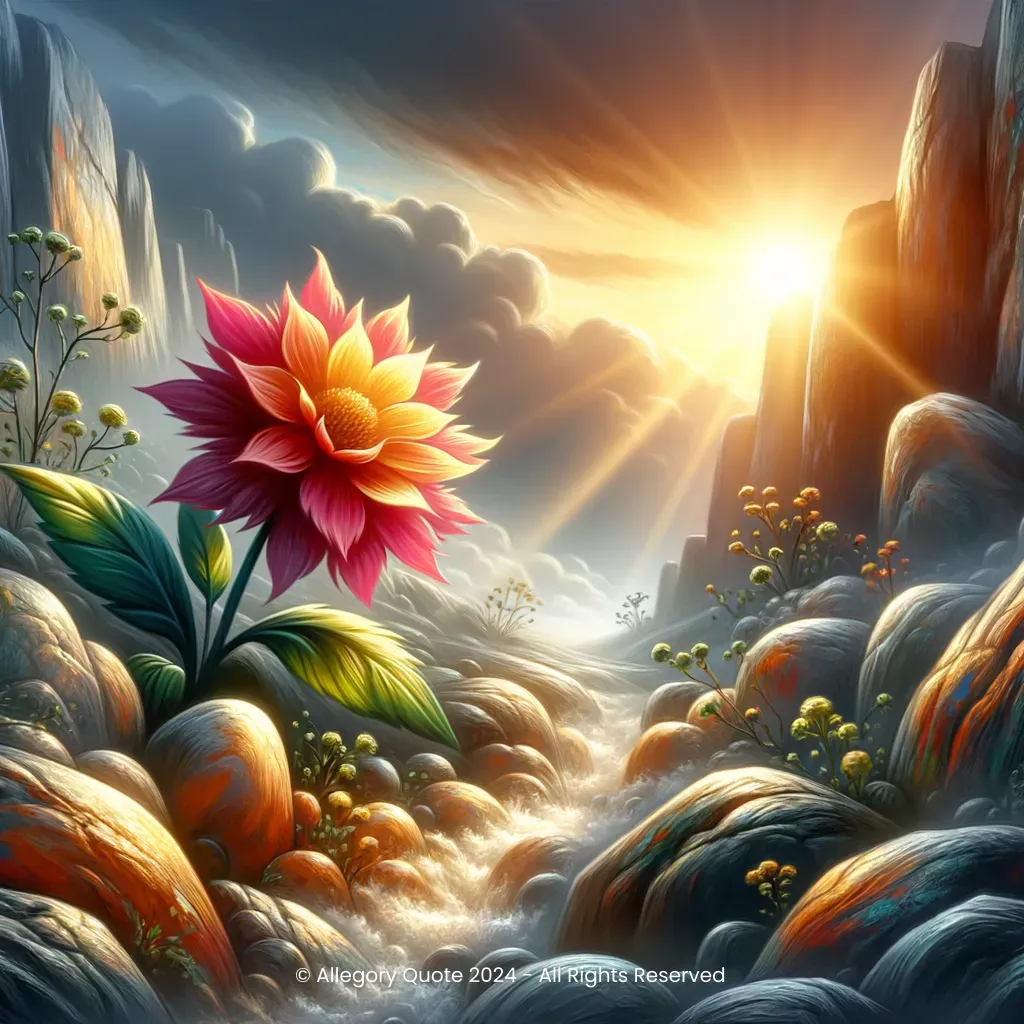”The flower that blooms in adversity
is the most rare and beautiful of all“

0
0
0
0
- Meaning
- The phrase means that those who thrive despite facing hardships possess a unique beauty that is both rare and admirable. This ties into philosophical ideas about the strength of character and the human spirit, suggesting that challenges foster personal growth and resilience. Psychologically, overcoming adversity can lead to post-traumatic growth, where individuals emerge stronger and wiser than before.
- Allegory
- The image elements, such as the blooming flower amidst harsh rocks and sunlight, symbolize resilience in adversity. The vibrant colors of the flower contrast the starkness of the rocks, representing how true beauty and strength can emerge from tough situations, resonating with the central theme of the phrase.
- Applicability
- This phrase can inspire individuals to embrace their struggles as opportunities for personal development. In daily life, facing challenges with grace can lead to transformative experiences, encouraging individuals to see their difficult times as pathways to beauty and strength.
- Impact
- The phrase emphasizes resilience and has contributed to discussions about personal growth, influencing literature, motivational speaking, and various success-oriented narratives. It is often quoted in contexts involving encouragement during tough times, resonating in both personal and cultural transformations.
- Historical Context
- The phrase gained popularity in the late 1990s through the film 'Mulan', which was released in 1998. It captures the essence of overcoming adversity as a universal human experience, reflective of historical struggles throughout various cultures.
- Criticisms
- Criticism may arise from interpretations suggesting that challenges should inherently lead to beauty or growth without acknowledging the validity of pain or struggle in itself. Some argue that not all adversity leads to positive outcomes, emphasizing that it’s important to recognize individual experiences without romanticizing hardship.
- Variations
- Variations of this phrase exist in different cultures, like the Japanese proverb 'Nana korobi ya oki' which translates to 'fall seven times, stand up eight,' emphasizing perseverance. In various cultures, the interpretation of adversity can vary, highlighting a respect for differing perspectives on resilience.
-

Keep moving forward.
-

Put that thing back where it came from or so help me!
-

I’m bad, and that’s good. I will never be good, and that’s not bad.
-

You gotta put your behind in your past.
-

This is my family. I found it, all on my own. It’s little and broken, but still good. Yeah, still good.
-

I’m just a girl, standing in front of a boy, asking him to love her.
-

You’re only a fool if you give up.
-

You are my greatest adventure.
-

Nobody gets left behind.
-

A dream is a wish your heart makes.
-

I’m not a prize to be won!
No Comments